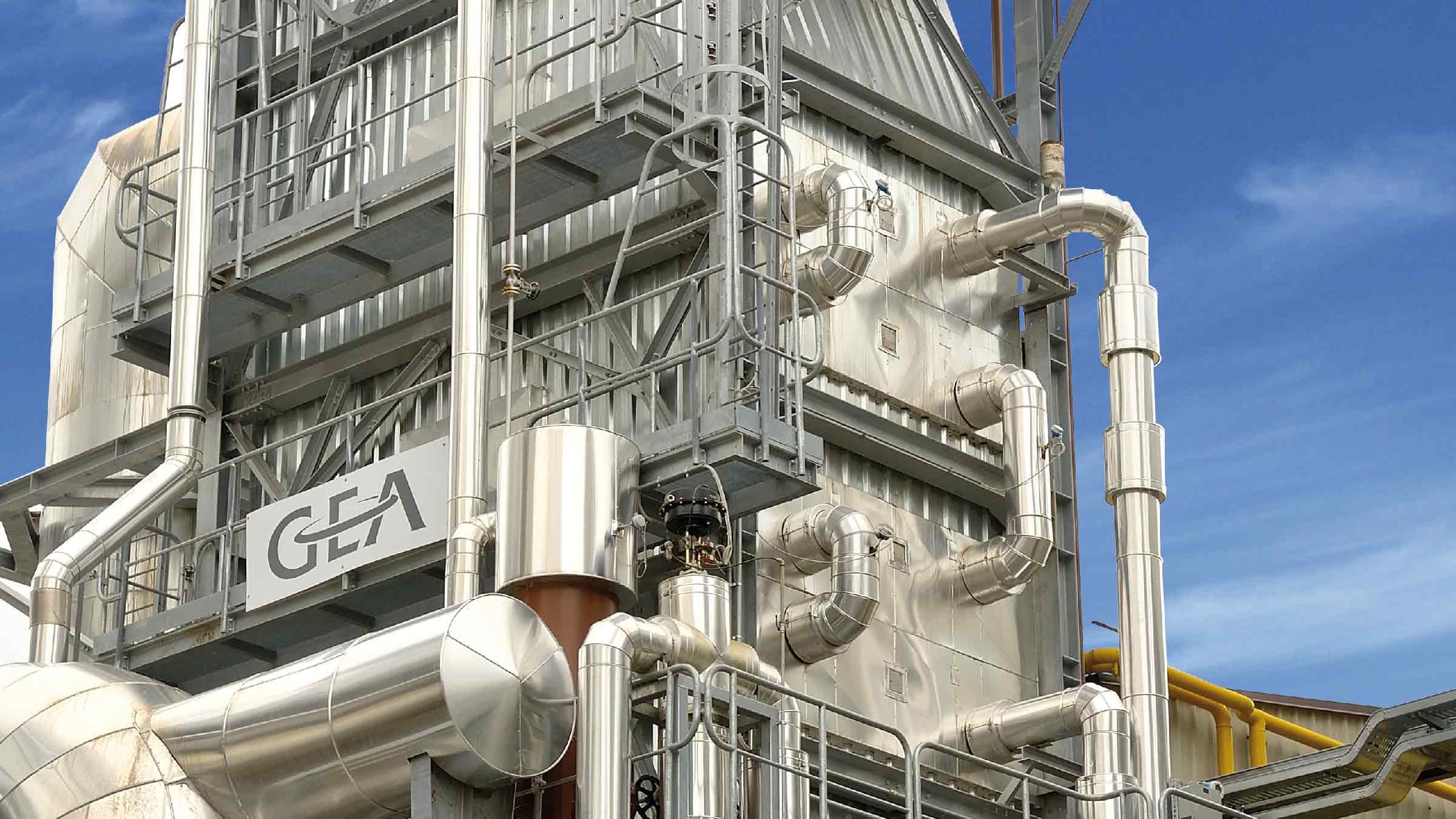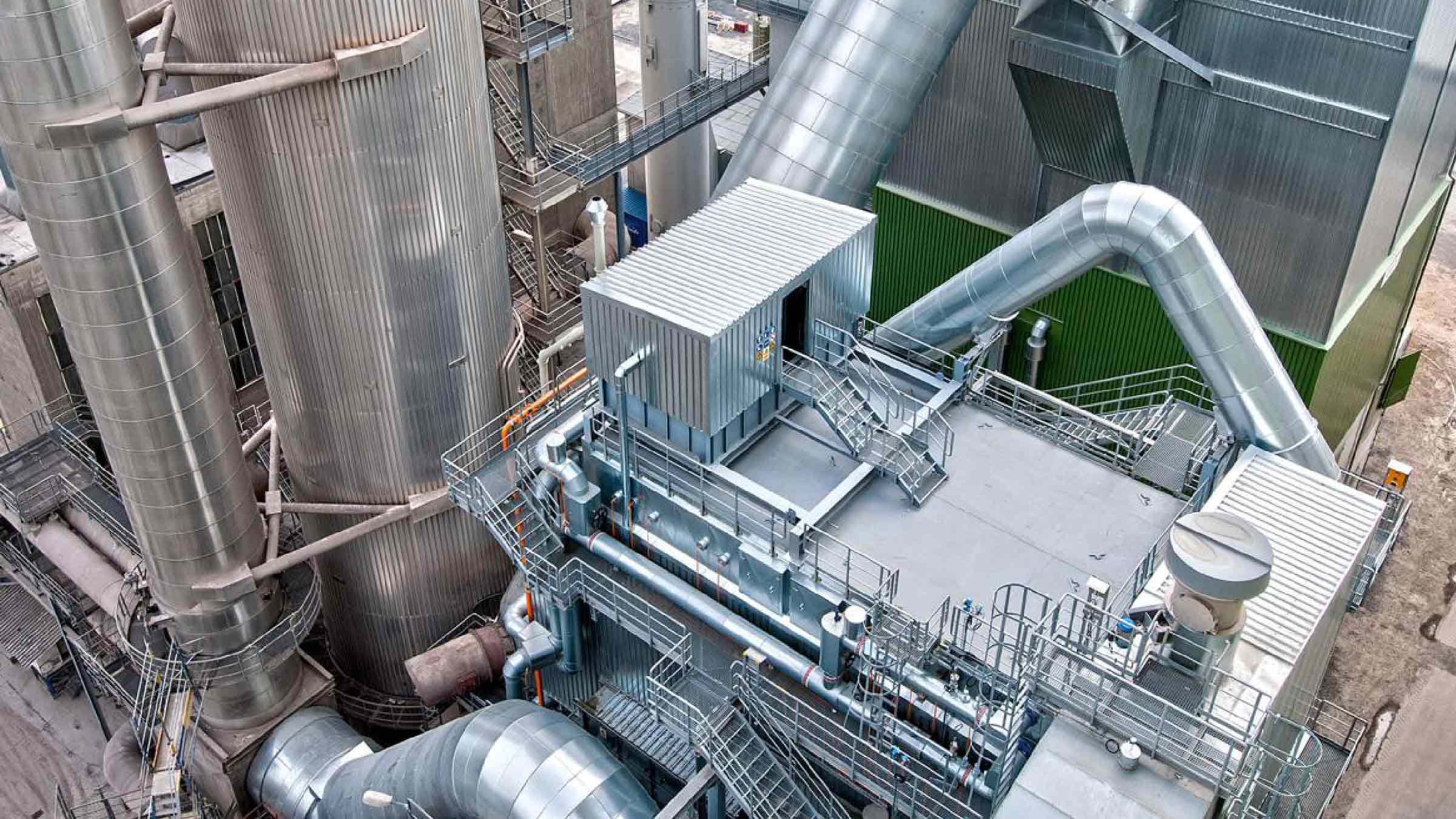CO2 saving processes
Organic Rankine Cycle (ORC) Module
GEA offers gas cleaning and energy recovery systems that employ ORC (Organic Rankine Cycle) technology, proven to be the most efficient solution for energy production.
The working principle of the Organic Rankine Cycle is the pumping of a working fluid into a superheater where it is evaporated, passed first through a turbine and then through a condenser heat exchanger where it is finally re-condensed.
The water leaving the ORC module condenser is cooled down by dissipating the heat to ambient air in a closed circuit through adiabatic or dry air coolers.
In the ORC module, the organic carrier fluid (organic substances with low boiling points and high vapor pressure) from the WHRU initially passes a further heat exchange step and then evaporates in the super heater and evaporator, driving a turbine with a coupled generator to produce electricity.
ORC energy recovery systems produce economical electricity or generate compressed air production for its use further in the production process.
Moreover, this solution contributes to the reduction of the entire CO2 footprint, since it generates no additional CO2 emissions.
Key features
- ORC technology works at low pressures and temperatures in contrast to other solutions
- High efficiency of the entire production system - approx. 25% of the exhaust heat is used
- High serviceability
- High flexibility of the various modules, ideal for retrofitting in narrow spaces
- Quick ROI (Return of Investment), sustainable reduction of energy costs
Downloads
Related Products

Waste gas heat exchanger
In the last years the high prices of energy and the need to reduce CO2 emissions increased the importance of energy recovery applications for all industrial processes.
Hot process gas going to the plant stack means losing valuable thermal energy which could be easily recovered and/or converted in electric power. Waste heat in industry is a poten...

Energy recovery from flue gases
Energy saving is a key success factor when trying to achieve a reduction of the carbon footprint, it can be made by improving process efficiency to recover waste heat, not only from the production process, but also from the hot process gas that in many cases is simply released into the atmosphere, unutilized. GEA offers reliable and highly effici...
GEA Insights India
All pharmaceutical freeze-drying vials are the same! Aren't they?
Whether it’s a fad or the future, 100% vial traceability is becoming an increasingly important consideration in the pharmaceutical freeze drying industry. Keeping a close eye on developments is GEA. We’re investigating possible solutions and, what’s more, we have the experience, expertise and know-how to implement them.
Alcohol-free beer: They want it all – they want less
There was a time when the phrases ‘non-alcoholic beer’ and ‘tastes good’ were seldom used together in the same sentence, particularly by consumers. But low-proof and alcohol-free beers have come a long way – many of them now refreshing drinks in their own right – thanks in no small part to technology from GEA.
Innovating patient care with aseptic spray drying
At GEA, our commitment to engineering for a better world fuels our pursuit of innovative solutions that enhance patient care and safety. One of our most promising ventures in recent years is aseptic spray drying – a technology that promises to revolutionize pharmaceutical manufacturing.


